Every December for the past few years I’ve done a thread on twitter of my favourite books, in case anyone is looking for Christmas present suggestions. They’re not necessarily books released this year, just ones I’ve read and enjoyed.
Here are links to the recommendations for 2021, 2020, and 2019. Anyway now I have this substack I thought I’d do the list for 2022 here. It’s a top 15 in no particular order except I’ve started with my three favourite reads this year. There’s only a couple of novels in there this time, I’ve read almost exclusively non-fiction this year having read mostly fiction during the pandemic.
Needless to say the best Christmas present for 2022 is Dad’s book on Command which has featured on the FT and Times books of the year lists, amongst others, and got brilliant reviews. But as I read that last year in draft it’s not on my list….
The Free World: Art and Thought in the Cold War by Louis Menand
No book gave me more pleasure or more to think about in 2022. I wrote about it earlier this year -
“It focuses entirely on the period 1945-70 and ranges widely across the great Western intellectuals of the period from Satre to Sontag and most everyone in between. The artistic focus in primarily on avant-garde culture, the Beats, the abstract expressionists, Pop Art and so on. But there is space too for Elvis and The Beatles and the Hollywood New Wave. The theorists of the Cold War itself are there too, with George Kennan getting his own chapter. Politicians lurk in the background rather than at the centre of the narrative but the key events, from the Marshall Plan to civil rights to Vietnam are deftly woven in….
For anyone interested in the cultural history of the period you will not find a better or more thoughtful guide, there is almost no one else who can explain things so clearly while holding complexity in place. The sections on race alone, using James Baldwin as his major point of focus through the latter half of the book, are worth the admission price. It’s one to really savour.”
Putin’s People: How the KGB Took Back Russia and Then Took on the West by Catherine Belton
I read quite a few books about contemporary Russia before and after the invasion of Ukraine, to try and get a grip on what Putin was doing. I thought this was the best. I wrote about this one earlier in the year too -
“The most eye-opening sections for me were around Putin’s early career and rise to power, starting with his days in the KGB in East Germany where Belton focuses on the (unproven) possibility that he worked with the Baader-Meinhof Gang to terrorise West Germany. Belton goes on to describe how, as Deputy Mayor of St. Petersburg in the early 90s, Putin worked closely with organised criminal gangs to manage the city. When people now say he’s acting like a gangster, it’s hardly surprising, he is a gangster….
Belton’s book is invaluable in understanding how Russia ended up in the place it’s in today (you can tell how important it is by the number of wealthy Russians who have attempted to abuse the UK’s ridiculous libel laws to force retractions).”
Scout Mindset: Why Some People See Things Clearly and Others Don’t by Julia Galef
This one inspired my very first post, on changing your mind, and I’ve mentioned it in several subsequent posts. Essentially it’s a short guide to rationalist approaches with some added behavioural pyschology. But what I love so much about it is the scout/solider mindset heuristic - trying to discover an accurate map of the world versus trying to fight your corner by any means necessary.
It’s a rare idea from a book that I’ve completely internalised - more so than say Daniel Kahneman’s system 1 and 2 thinking, which is a similar idea more dryly expressed. When getting grumpy in an online argument I often find myself thinking - “you’re going solider mindset - stop it”. I’ve noticed it’s started to become used more widely in discussions though, as Galef herself notes in the book, one of the problems with the idea is that “that’s a solider mindset position” can itself be used as a solider-ish attack. It’s probably best used as a mechanism for self-reflection rather than an accusation.
This is How They Tell Me the World Ends by Nicole Perlroth
This pacy and alarming overview of cyberwarfare was a worthy winner of the FT book award last year. It was not a subject I knew much about and have no expertise in computing but the technical concepts were set out in a way that were easy to understand without being patronising. Perlorth weaves herself into the story, and her wide-eyed discoveries of ever more terrifying levels of state interference into the technology all our lives now revolve around, provide the structure for the book.
The historical sections on the US secret services’ tense relationship with the big tech companies were particularly fascinating, as were the chapters on Russian interference in Ukrainian infrastructure, including hacking into their power grid and the NotPetya attack which ended up causing £7.5 billion damage worldwide. The book came out before the current war in Ukraine but leaves you wondering why Russian cyberwarfare has been less successful this time around, despite several efforts.
All in it Together by Alwyn Turner
This is the fourth in Turner's series of histories of modern Britain starting in the 70s - all of which I’ve enjoyed immensely. This one goes from 2001 to 2014 and it’s remarkable how many details you forget even about very recent history. I’d forgotten that the Daily Mail backed Ken Clarke for Tory leader in 2001; and that UKIP’s candidate for the Mayor of London in 2004 was boxing promoter Frank (now Kellie) Maloney. The politics sections give you a real flavour for how unusual Blair was as a politician and the pluses and minuses of what was an almost messianic level of self-belief in his worldview.
But my favourite bits of Turner’s books are always the ones about popular culture, which he writes about better than almost anyone. The section I enjoyed the most in this volume, and found most thought-provoking, was a comparison between elite society attitudes towards the shock comedy of Jimmy Carr and the outdated, but still extremely popular, working class racist/sexist banter of Roy “Chubby” Brown.
Winds of Change: Britain in the Early Sixties by Peter Hennessy
On a similar theme to the previous choice this is the third in Hennessy’s post-war history of Britain - and again I’ve enjoyed all of them. Hennessy’s focus is much more political than Turner or indeed David Kynaston’s brilliant “New Jerusalem” series which covers the same post-war period. Naturally he focuses heavily on Harold Macmillan in this volume which makes it all the more entertaining as he was comfortably the wittiest PM we’ve ever had, much more so than Churchill.
It’s full of entertaining anecdotes like Macmillian’s wife Dorothy being unable to find fridge space for the spare blood Charles de Gaulle carried around at all times in case of assassination attempts. The had to buy another fridge to put the blood in which stood in Macmillan’s coach house “like an alter to Mithras” in his words. Another example: Hennessy quotes a lengthy exhange of Whitehall letters on whether Macmillan’s driver should always carry four pennies in case they needed to stop by a phone box so the Prime Minister could authorise a nuclear strike.
Much of the book is occupied with Macmillan’s grand foreign policy plans and his desire to sit in the middle of an overlapping venn diagram between the US, what would become the EU, and the Commonwealth. The sections on his frustrated attempts to join the European Economic Community are excellent, and a reminder than some of the most powerful anti-membership rhetoric at the time came not from Tory right-wingers but Labour leader Hugh Gaitskell.
The Power Law: Venture Capital and the Art of Disruption by Sebastian Mallaby
I probably wouldn’t have picked this up had I not been paid to review it for the Sunday Times, but I’m glad I did because it’s an entertaining guide to a world that provided the foundation for the modern tech revolution and the cultural dominance of Google, Facebook, Microsoft, Apple and so on. From my review:
“Much of the book is about the often fraught relationships between funders and founders. In the early days, when venture capital was still relatively scarce, it bought significant influence. VCs didn’t just invest; they often ended up in effective control. Cisco Systems was wrested away from the eccentric couple who set it up. An executive team had to be found to offer initial support to the unwashed oddballs who set up Apple.
However, the profits made by those who backed Apple, Google, Amazon and others led to a surge in available cash and a world in which the most attractive-sounding startups increasingly held the power. By 2004 Mark Zuckerberg was turning up to a prestigious venture fund in pyjamas as a deliberate insult, knowing other funders would still be keen to invest.
This cult of the founder has led to some spectacular blow-ups. Adam Neumann of WeWork managed to convince some of the most established investors to give him billions for a glorified office hire company before his erratic behaviour finally caught up with him. Uber’s deeply unpleasant cofounder Travis Kalanick wasted an astonishing amount of cash before investors finally managed to wrest back control.”
The Origins of Political Order and Political Order and Political Decay by Francis Fukuyama
These incredibly ambitious books are essentially a distillation of Fukuyama’s life work on the importance of liberal democracy. The first volume goes from early man to the French revolution to explain its origins and why it happened in some places and not others. The second takes the story to the present day. The core argument is that stable order requires a strong state; the rule of law; and political accountability. If you miss out on any one of the three you’re in trouble.
The first volume is the better one in that it provides numerous insights into why some European countries developed the right mix of attributes while others, like China, which developed a strong state far earlier, did not. I was particularly taken by the importance of the medieval church in breaking the kinship orientation of early societies by creating power networks that weren’t built around family (thus the importance of priests not being able to have children).
The second book rather fails to answer the question he poses - how do we avoid the breakdown of liberal democracy in the face of growing inequality and the attractions of anti-democratic demagogues? You sense he is rather more pessimistic on this point than he lets on. Though his thesis that liberal democracy, even with its flaws, does work better than anything else keeps being proven right.
Seeing Like a State by James Scott
This is the oldest non-fiction book on the list - it’s 25th anniversary is next year - and probably the most debated, at least by economists. It is a beautifully written and compelling attack on utopian schemes developed by state elites, what he calls “high modernism”. His examples range from 19th century forestry in Germany to Lenin and post-colonial Tanzania. His core point is undoubtedly true - the state elite’s view of the world is limited by the information available to them, and their inability to understand the detail of peoples’ lives and decision-making can cause tragic errors of judgment. Scott’s romantic attachment to what he calls “metis” - essentially local wisdom - will ring at least partially true to anyone who has worked in international development.
But as many other critics have noted he overstates his case by picking an eccentric and fairly abitrary group of examples and ignoring large-scale state programmes that have improved people’s lives or at least where the effects have been ambigious. For instance slum clearances in London dramatically improved health and life expectancy but the large out of town estates people were moved to lacked the social networks people had developed in more densely populated areas in a way that wasn’t anticipated by planners. I can certainly see why it’s considered a classic though.
The Unburied by Charles Palliser
The first of the two novels on the list. I do not understand why Palliser isn’t more popular. A few years ago I recommended his magnum opus “The Quincunx” - which is the most brilliant murder mystery / meta fiction / pastiche of Victorian literature all at the same time. I’m not sure I’ve ever enjoyed reading a book more. It’s one of those recommendations where people come up to me every now and again at a conference and thank me for suggesting it.
The Unburied is not as good but it’s still very good. It’s similarly a multi-layered historical murder mystery, or rather several different mysteries across multiple time periods, expertly brought together at the end. Just an absolute delight to read.
Why We Get the Wrong Politicians? by Isabel Hardman
This was a bold title for Hardman given she’s a political journalist who needs access from politicians and is indeed married to one. But it’s actually more focused on their plight than condemnation. Indeed it’s probably the most empthatic book about politics I’ve read, using interviews to explore the misery, and cost, of running for Parliament, the lack of support when new MPs get there, and the personal cost of abuse.
I agree with many of her suggestions, particularly around greater support for candidates in order to increase the social diversity of Parliament, and additional support around constituency duties. I suspect she soft-pedals her own views a bit on things like MP pay - it’s not popular to argue they should be paid more, given their salaries are already far above the national average, but they really should be when you look at how many higher earning public sector jobs there are. Generally though a great book with lots of useful insights about the flaws in our political system.
Held in Contempt by Hannah White
On more or less the same theme Hannah White - the new Director at the Institute for Government and formerly a senior House of Commons clerk - has written about why Parliament is in such a mess. Literally - it’s falling down because MPs keep putting off a decision about repairs due to the cost and because they don’t want to move out. This is an apt metaphor for a whole series of wider problems. White focuses less on the personal challenges that Hardman talks about and more about the ways in which the executive has evaded accountability - for instance by avoiding proper debates over covid rules despite the massive impact they had on all our lives. Again there are lots of good ideas for how to improve things - including building on the existing select committee system - which I think would make a very positive difference.
13. Confidence Man by Maggie Haberman
The best biography of Trump to date from a journalist whose been trying to understand him for decades and, as a white house reporter, got inveigled into his weird psychological games. The more recent stuff on his time as President is fairly familiar given it all got so much coverage at the time but I knew less about his early career and his deeply screwed up relationship with his father.
Haberman convincingly shows how he developed his unqiue style of chaotic braggadacio through multiple real estate deals involving all sorts of fraud and double dealing. Essentially he realised that by being a complete arsehole while at the same time occassionally turning on the charm he could disorient people enough to get what he wanted. And then he tried to do that to the whole world.
City on Fire by Don Winslow
The second novel on the list by another of my favourite writers from the past few years. Winslow’s “Cartel Trilogy” based on real life characters from the US/Mexico drug wars is probably the greatest crime fiction written this century. And his standalone novels are fantastic too. This one is a remarkably close retelling of the Illiad but set in Rhode Island in the 80s with the Trojans being an Irish mafia gang and the Greeks being their Italian rivals.
If you know the Illiad you know how it’s going to end, more or less, but it’s enormously enjoyable seeing how he mirrors the structure with all sorts of clever references to the original text. Achilles dragging Hector’s body after his chariot becomes one character being driven over in a car and being pulled along for several hundred metres. It is the first of a new trilogy and I can’t wait for the next one which looks to me like it will be based on the Aeneid.
The Nineties by Chuck Klosterman
A really fun and nostaglic book for anyone who grew up in the nineties. Klosterman covers a huge amount of material in a fairly short book - from Friends, Seinfeld and the bizarre (and unexpected) success of Titanic, to the OJ Simpson trial, Ross Perot and the Oklahoma bombing. If there’s a theme here it’s the shift in how we think about time and memory as a result of the arrival of the internet. The 90s were the last decade when everything wasn’t immediately and permanently on record allowing for widely shared false memories like the non-existent film Shazaam. He’s also good on the last vestiges of the physical object as entertainment - the video store and the CD and how the rise of file-sharing began to change the nature and purpose of media.

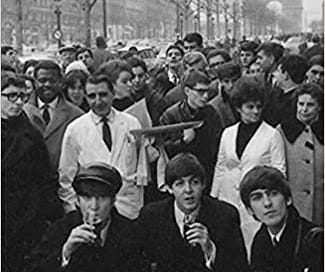



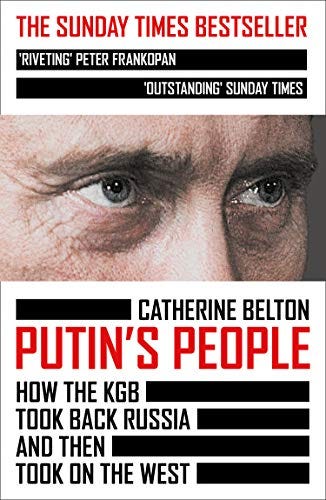
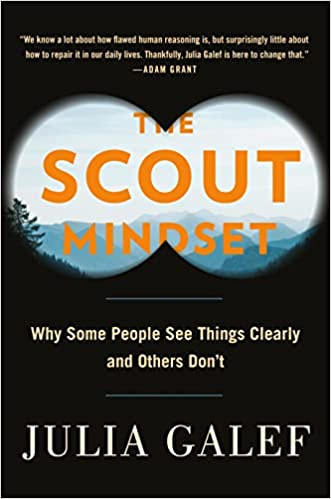
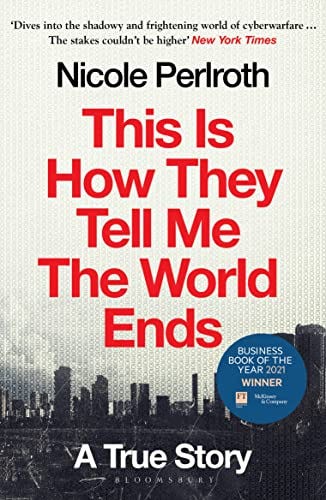
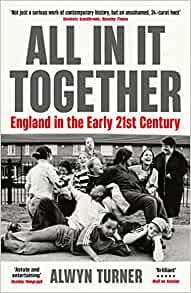
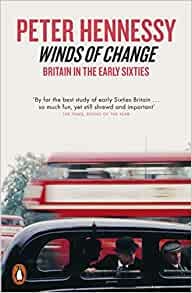
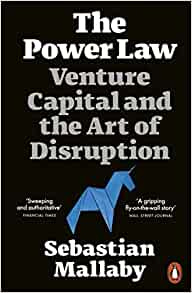
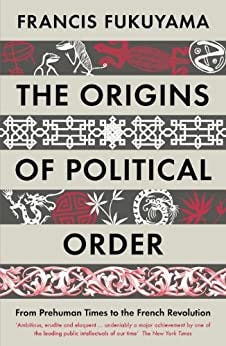
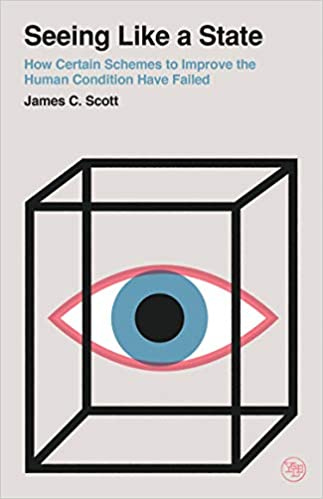
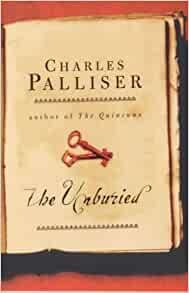


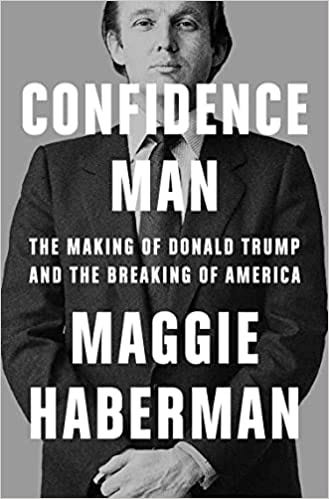
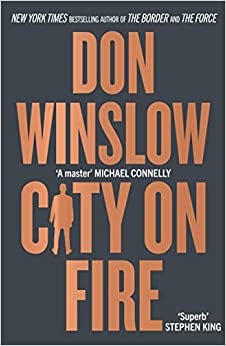
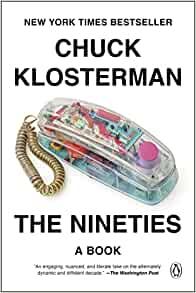
I know you would have a conflict of interest but it should be mentioned that your father's book 'Command' is excellent and I would thoroughly recommend to anyone interested in military history and the politics of military command. I enjoyed it immensely cover to cover.
1, 5, 6, 13 and 15 look really good.